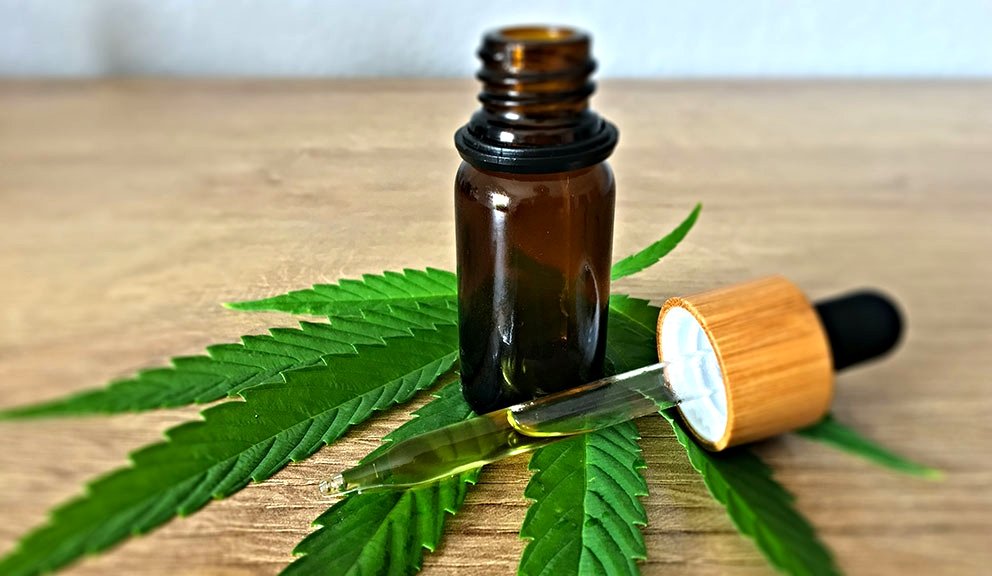15 Health Benefits Of CBD Oil According to Science

CBD oil, also known as cannabidiol oil, is gaining immense popularity for its potential health benefits. Derived from the cannabis plant, it has garnered attention for its therapeutic properties without causing psychoactive effects.
CBD oil has become a buzzword in the wellness industry, touted as a natural remedy for a wide array of health concerns. Unlike tetrahydrocannabinol (THC), another compound found in cannabis, CBD does not induce a “high.” This makes it a promising option for those seeking relief without the mind-altering effects.
In this article, we’ll explore fifteen health benefits of CBD oil and how it can positively impact various aspects of our well-being.
Read More: The Potential Health Benefits of CBD for Pain Management
Explore the Contents
- 1 What is CBD Oil?
- 2 How Does CBD Oil Work?
- 3 The Health Benefits of CBD Oil
- 3.1 1. Pain Relief and Management
- 3.2 2. Reducing Anxiety and Stress
- 3.3 3. Improving Sleep Quality
- 3.4 4. Anti-inflammatory Properties
- 3.5 5. Managing Epileptic Seizures
- 3.6 6. Potential Neuroprotective Effects
- 3.7 7. Treating Skin Conditions
- 3.8 8. Aiding Substance Abuse Treatment
- 3.9 9. Promoting Heart Health
- 3.10 10. Alleviating Cancer-Related Symptoms
- 3.11 11. Supporting Mental Health
- 3.12 12. Enhancing Digestive Health
- 3.13 13. Balancing Hormones
- 3.14 14. Reducing Acne
- 3.15 15. Boosting Immune Function
- 4 How to Use CBD Oil
- 5 Legal Considerations and Safety
- 6 Conclusion: Health Benefits Of CBD Oil
- 7 FAQs: Health Benefits Of CBD Oil
What is CBD Oil?
CBD oil is a concentrated extract derived from the hemp plant, a strain of cannabis. It contains cannabinoids, which are chemical compounds that interact with the endocannabinoid system in our bodies. The endocannabinoid system plays a crucial role in maintaining balance and homeostasis.
How Does CBD Oil Work?
When CBD oil is consumed, it interacts with the endocannabinoid receptors in the nervous system and immune system, among others. This interaction helps regulate various physiological processes, leading to the potential health benefits.

The Health Benefits of CBD Oil
1. Pain Relief and Management
CBD oil is known for its analgesic properties, making it an effective option for individuals suffering from chronic pain conditions such as arthritis, multiple sclerosis, or fibromyalgia. By interacting with the endocannabinoid receptors, CBD can reduce inflammation and alleviate discomfort, promoting a better quality of life for those dealing with persistent pain.
2. Reducing Anxiety and Stress
CBD has shown promising results in reducing anxiety and stress levels in both human and animal studies. It interacts with serotonin receptors in the brain, which play a crucial role in regulating mood and anxiety. CBD oil can be particularly beneficial for individuals with generalized anxiety disorder, social anxiety, or post-traumatic stress disorder (PTSD).
3. Improving Sleep Quality
Individuals experiencing sleep disturbances may find relief with CBD oil. By reducing anxiety and promoting relaxation, CBD can help improve sleep quality and potentially treat insomnia. It may also be beneficial for individuals with sleep disorders related to conditions such as Parkinson’s disease or chronic pain.
4. Anti-inflammatory Properties
CBD’s anti-inflammatory properties make it a valuable natural remedy for managing various inflammatory conditions, such as rheumatoid arthritis or inflammatory bowel disease. By reducing inflammation, CBD oil can help alleviate pain and improve overall well-being.
5. Managing Epileptic Seizures
One of the most well-known health benefits of CBD oil is its ability to manage epileptic seizures, particularly in cases of treatment-resistant epilepsy. The FDA has approved a CBD-based medication called Epidiolex for this specific purpose.
6. Potential Neuroprotective Effects
Studies have suggested that CBD may have neuroprotective properties, which means it could help protect the brain from damage and degeneration. This has sparked interest in its potential use in treating neurological conditions like Alzheimer’s disease and multiple sclerosis.
7. Treating Skin Conditions
CBD oil’s anti-inflammatory and antioxidant properties can be beneficial for various skin conditions, including acne, eczema, and psoriasis. By soothing irritated skin and reducing inflammation, CBD can promote healthier skin.
8. Aiding Substance Abuse Treatment
Research indicates that CBD may help individuals struggling with substance abuse disorders by reducing cravings and anxiety associated with addiction. While more studies are needed, CBD shows promise as an adjunct therapy for addiction treatment.
9. Promoting Heart Health
CBD oil may have a positive impact on heart health by reducing high blood pressure and improving cardiovascular function. Its ability to lower stress and anxiety levels can also indirectly contribute to heart health.
10. Alleviating Cancer-Related Symptoms
For individuals undergoing cancer treatment, CBD oil can help alleviate symptoms such as nausea, vomiting, and pain. It may also assist in managing cancer-related side effects and improving overall well-being.
11. Supporting Mental Health
CBD oil has shown potential in supporting mental health by promoting a sense of calm and well-being. It may aid in managing conditions such as depression, bipolar disorder, and anxiety disorders.
12. Enhancing Digestive Health
CBD’s interaction with the endocannabinoid system can help regulate digestive processes, providing relief from issues like irritable bowel syndrome (IBS) and inflammatory bowel disease (IBD).
13. Balancing Hormones
CBD may influence the endocrine system, which plays a role in hormone production and regulation. As a result, it could be beneficial for individuals experiencing hormonal imbalances.
14. Reducing Acne
CBD’s anti-inflammatory properties and its ability to regulate sebum production in the skin make it a potential treatment for acne-prone skin.
15. Boosting Immune Function
The interaction between CBD and the endocannabinoid system may support the immune system, helping the body defend against infections and illnesses.
Read More: CBD and Stress Relief: Exploring its Calming Effects
How to Use CBD Oil

When using CBD oil, it’s essential to start with a low dosage and gradually increase it as needed. CBD oil can be consumed orally, sublingually, topically, or inhaled through vaporization. It’s crucial to consult with a healthcare professional before starting CBD, especially if you are taking other medications.
Legal Considerations and Safety
While CBD is generally considered safe, it may interact with certain medications. Additionally, the legality of CBD varies from country to country, so it’s essential to be aware of local regulations before purchasing or using CBD oil.
Conclusion: Health Benefits Of CBD Oil
CBD oil has shown remarkable potential in providing various health benefits, from relieving pain and managing anxiety to supporting heart health and promoting overall well-being. As research on CBD continues to expand, more potential benefits may come to light. If you are considering using CBD oil, it’s advisable to consult with a healthcare professional to ensure it aligns with your specific health needs.
FAQs: Health Benefits Of CBD Oil
Is CBD oil legal?
The legal status of CBD oil varies from country to country. In some places, CBD is legal for medicinal use, while in others, it may be available only with a prescription or not allowed at all. Always check your local regulations.
Can CBD oil get you high?
No, CBD oil does not produce the psychoactive effects associated with marijuana. It contains only trace amounts of THC, the compound responsible for the “high” feeling.
Is CBD addictive?
CBD is not addictive. It does not produce physical dependence, nor does it cause withdrawal symptoms when discontinued.
How does CBD oil work?
CBD interacts with the body’s endocannabinoid system, which plays a role in regulating various physiological processes, including pain perception, mood, and immune function.
Are there any side effects of using CBD oil?
While CBD is generally well-tolerated, some individuals may experience side effects such as fatigue, changes in appetite, or diarrhea. It’s essential to start with a low dosage and monitor your body’s response. If you experience any adverse effects, consult with a healthcare professional.





